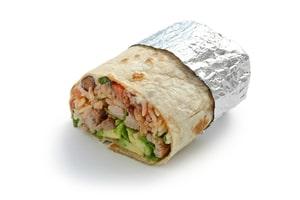
312-981-0409
33 N Dearborn St 10th Floor, Chicago, IL 60602
Serving Clients Across 7 Illinois Locations
Recent Blog Posts
Chipotle Fined $25 Million for Repeated Food Poisoning Outbreaks
 Restaurants are the source of numerous food poisoning incidents each year for which they may or may not be responsible. Sometimes, the restaurant will unknowingly use contaminated food and the food supplier is the liable party. Other times, the restaurant may have caused the incident if it was negligent in safely preparing the food or maintaining a clean kitchen. If a single restaurant or chain of restaurants is involved in multiple food poisoning incidents, health officials may investigate the food safety practices of the restaurants. Officials can even recommend that criminal charges be brought against the restaurant for serving contaminated food.
Restaurants are the source of numerous food poisoning incidents each year for which they may or may not be responsible. Sometimes, the restaurant will unknowingly use contaminated food and the food supplier is the liable party. Other times, the restaurant may have caused the incident if it was negligent in safely preparing the food or maintaining a clean kitchen. If a single restaurant or chain of restaurants is involved in multiple food poisoning incidents, health officials may investigate the food safety practices of the restaurants. Officials can even recommend that criminal charges be brought against the restaurant for serving contaminated food.
Chipotle Pays Record Fine
The U.S. Attorney’s Office in the Central District of California fined Chipotle Mexican Grill $25 million for two counts of severing adulterated food in its restaurant. Chipotle agreed to pay the fine – which is the largest ever for a food safety case – and claimed that it has already spent millions more to improve its food safety practices. The U.S. Food and Drug Administration traced at least five food poisoning outbreaks to the restaurant from 2015 to 2018 that are believed to have sickened more than 1,100 people. The cases included multiple norovirus outbreaks in different restaurants across the country. The allegations against the company included:
Mushroom Listeria Case Causes Four Deaths
 There are numerous mushrooms that grow in the wild that are poisonous, and it is difficult to tell the difference between a safe and deadly wild mushroom. Health professionals recommend that consumers only eat mushrooms that they buy in a store or are served in a restaurant. However, it is still possible to get food poisoning from eating store-bought mushrooms. A recent listeria outbreak linked to packaged mushrooms resulted in four deaths and 30 hospitalizations.
There are numerous mushrooms that grow in the wild that are poisonous, and it is difficult to tell the difference between a safe and deadly wild mushroom. Health professionals recommend that consumers only eat mushrooms that they buy in a store or are served in a restaurant. However, it is still possible to get food poisoning from eating store-bought mushrooms. A recent listeria outbreak linked to packaged mushrooms resulted in four deaths and 30 hospitalizations.
Outbreak Details
Sun Hong Foods recalled its packages of enoki mushrooms on March 9 due to potential listeria contamination. Thirty-six people across more than a dozen states had reportedly become ill with listeriosis, and half of the patients said they had recently eaten mushrooms. Tests conducted on enoki mushrooms sold in California found that they were contaminated with listeria. Enoki mushrooms are long and white with small caps and are commonly used in cuisine from Asian countries. Listeria can contaminate fresh-grown produce through soil, water, and animal feces. Once listeria infects a food processing facility, it can spread to other products in the facility.
Jimmy John’s Receives FDA Warning About Contaminated Produce
 The U.S. Food and Drug Administration (FDA) sent a warning letter to the sandwich restaurant chain Jimmy John’s, claiming that the franchise has repeatedly purchased adulterated produce. The FDA identified sprouts and cucumbers as the adulterated products and cited five outbreaks of E. coli or salmonella linked to the restaurants since 2012. Though Jimmy John’s removed sprouts from its stores as a precautionary measure, the FDA said the franchise needs to take corrective action to prevent such outbreaks from continuing to occur. E. coli and salmonella infections can be potentially fatal to young children, older adults and people with weakened immune systems.
The U.S. Food and Drug Administration (FDA) sent a warning letter to the sandwich restaurant chain Jimmy John’s, claiming that the franchise has repeatedly purchased adulterated produce. The FDA identified sprouts and cucumbers as the adulterated products and cited five outbreaks of E. coli or salmonella linked to the restaurants since 2012. Though Jimmy John’s removed sprouts from its stores as a precautionary measure, the FDA said the franchise needs to take corrective action to prevent such outbreaks from continuing to occur. E. coli and salmonella infections can be potentially fatal to young children, older adults and people with weakened immune systems.
What Is Adulterated Produce?
Adulterating food normally refers to adding or replacing ingredients in a food product that may cause harm to those who consume it. For instance, a food manufacturer may replace a natural ingredient in its product with an artificial one, which causes people to become sick upon eating it. In the Jimmy John’s case, the E. coli and salmonella are not artificial ingredients but poisonous substances that have contaminated the produce. Though the producer did not intentionally add the contaminants, it still meets the legal definition of adulterated because there is enough of the contaminant to cause harm.
Differentiating Between Food Poisoning and a Stomach Virus
 If you are experiencing sudden stomach pain, nausea and/or diarrhea, there are generally two possible causes: food poisoning or stomach flu. Both of their symptoms are similar enough that it is difficult for you to tell the difference. However, the difference between food poisoning and stomach flu can determine whether someone may be liable for your medical expenses and suffering. Illinois has strict liability for food poisoning cases while catching a stomach virus usually falls out of the realm of liability. This is one reason why you should see a doctor, who can diagnose the cause of your sickness.
If you are experiencing sudden stomach pain, nausea and/or diarrhea, there are generally two possible causes: food poisoning or stomach flu. Both of their symptoms are similar enough that it is difficult for you to tell the difference. However, the difference between food poisoning and stomach flu can determine whether someone may be liable for your medical expenses and suffering. Illinois has strict liability for food poisoning cases while catching a stomach virus usually falls out of the realm of liability. This is one reason why you should see a doctor, who can diagnose the cause of your sickness.
Catching the Stomach Flu vs. Contracting Food Poisoning
The “stomach flu” is not actually a strain of influenza but a gastrointestinal virus that inflames your digestive system. The virus is passed person-to-person by coming in contact with an infected person or surfaces they have contaminated. You can catch a stomach virus if an infected person is preparing your food, but it is more common to catch it from the people you interact with.
Cut Fruit Causes Salmonella Outbreak in 11 States
 Salmonella is one of the most common sources of food poisoning in the U.S. The Centers for Disease Control and Prevention (CDC) estimate that 1.35 million people receive salmonella infections each year, which leads to 26,500 hospitalizations and 420 deaths. People most often associate salmonella with eating raw or undercooked meats. A CDC study published in 2011 found that 67 percent of the salmonella outbreaks came from poultry, eggs, pork, and beef. However, salmonella bacteria can contaminate any food, including fruits and vegetables.
Salmonella is one of the most common sources of food poisoning in the U.S. The Centers for Disease Control and Prevention (CDC) estimate that 1.35 million people receive salmonella infections each year, which leads to 26,500 hospitalizations and 420 deaths. People most often associate salmonella with eating raw or undercooked meats. A CDC study published in 2011 found that 67 percent of the salmonella outbreaks came from poultry, eggs, pork, and beef. However, salmonella bacteria can contaminate any food, including fruits and vegetables.
Cut Fruit Tied to Recent Outbreak
Tailor Cut Produce recalled several cut fruit products on Dec. 7 because of the risk of salmonella contamination. The products included:
- The Fruit Luau cut fruit mix
Airline Meals Are Frequent Source of Food Poisoning
 Airline food is often the source of jokes because of its reputation for poor quality. Many will remember the classic comedic film “Airplane!,” in which a majority of the passengers of a flight become ill after being served fish for dinner. Food poisoning from airline food is very real and not a laughing matter. It is difficult to track how many people contract food poisoning from food served on airplanes because passengers can disperse across the country or around the world. However, we do know from individual complaints and government inspections that there are numerous cases of food poisoning that originate from airline food.
Airline food is often the source of jokes because of its reputation for poor quality. Many will remember the classic comedic film “Airplane!,” in which a majority of the passengers of a flight become ill after being served fish for dinner. Food poisoning from airline food is very real and not a laughing matter. It is difficult to track how many people contract food poisoning from food served on airplanes because passengers can disperse across the country or around the world. However, we do know from individual complaints and government inspections that there are numerous cases of food poisoning that originate from airline food.
Startling Findings
Third-party food catering services provide most of the meals that people eat on airplanes. The federal Food and Drug Administration is responsible for inspecting the caterers for health code violations. A recent investigation by NBC News reported that the FDA has documented several violations in the past four years, such as:
Foreign Objects in Food Pose Danger to Consumers
 Most sources of food poisoning come from natural contaminants such as bacteria that infect the food during processing or as a result of improper refrigeration. Consumers can also be injured or become sick from foreign objects that they find in their food. For instance, an Illinois sausage company recently recalled more than 1,000 pounds of pork sausages under the label “Berkshire Natural Casing Sausage” because at least one package contained pieces of plastic in the meat. If you ingest a foreign object that was mixed in your food, you should treat the situation as if it is a food poisoning case, including seeking compensation.
Most sources of food poisoning come from natural contaminants such as bacteria that infect the food during processing or as a result of improper refrigeration. Consumers can also be injured or become sick from foreign objects that they find in their food. For instance, an Illinois sausage company recently recalled more than 1,000 pounds of pork sausages under the label “Berkshire Natural Casing Sausage” because at least one package contained pieces of plastic in the meat. If you ingest a foreign object that was mixed in your food, you should treat the situation as if it is a food poisoning case, including seeking compensation.
Possible Contaminants
The foreign objects that you may find in food are often associated with the people handling the food, the tools they use during preparation, and the condition of the preparation site. Objects may include:
Five Ways to Prevent Food Poisoning for the Holidays
 You will likely enjoy multiple large meals with family and friends this holiday season – even before the traditional Christmas Day feast. Unfortunately, there is always the chance that something you eat will cause you to become sick from food poisoning. No one wants to spend the holidays dealing with stomach pains, vomiting, diarrhea, or other food poisoning symptoms. As the host of a meal or preparer of a dish, you could be liable if others get food poisoning from the food that you served. Here are five tips for avoiding food poisoning at holiday meals:
You will likely enjoy multiple large meals with family and friends this holiday season – even before the traditional Christmas Day feast. Unfortunately, there is always the chance that something you eat will cause you to become sick from food poisoning. No one wants to spend the holidays dealing with stomach pains, vomiting, diarrhea, or other food poisoning symptoms. As the host of a meal or preparer of a dish, you could be liable if others get food poisoning from the food that you served. Here are five tips for avoiding food poisoning at holiday meals:
- Check for Food Recalls: Food producers and sellers are sometimes the ones who are liable for their products containing bacteria or other contaminants. The U.S. Food and Drug Administration (FDA) or Department of Agriculture Food Safety and Inspection Service may issue a recall on a product if food poisoning cases are believed to be connected to the product or there is a reason to believe that the product has been contaminated. Do a simple internet search on food product recalls in case you purchased a product that has been recalled.
Lettuce E. Coli Outbreak Hits U.S. for Third Year
 The Centers for Disease Control and Prevention (CDC) reports that 67 people have become sick since Sept. 24 due to E. coli found in romaine lettuce. Consumers are warned to not eat romaine that was grown in Salinas, California, and to avoid purchasing romaine if it does not say where it was grown. According to the CDC, 39 people have been hospitalized, with six of those patients developing kidney failure. Illnesses have been reported across 19 states, including one person in Illinois who was hospitalized. The CDC is still investigating the source of the contamination and whether products from other areas are contaminated.
The Centers for Disease Control and Prevention (CDC) reports that 67 people have become sick since Sept. 24 due to E. coli found in romaine lettuce. Consumers are warned to not eat romaine that was grown in Salinas, California, and to avoid purchasing romaine if it does not say where it was grown. According to the CDC, 39 people have been hospitalized, with six of those patients developing kidney failure. Illnesses have been reported across 19 states, including one person in Illinois who was hospitalized. The CDC is still investigating the source of the contamination and whether products from other areas are contaminated.
History of Outbreaks
This is the third consecutive year that the same strain of E. coli has been linked to leafy greens sold in the U.S.:
Produce Linked to Many Food Poisoning Cases in U.S.
 Raw fruits and vegetables are undeniably an important part of a nutritious diet, but they can also be a source of food poisoning. In fact, a 2015 study from the Centers for Disease Control found that almost half of the reported food poisoning cases from 2008 to 2012 came from eating raw produce. The CDC cited several possible reasons for this:
Raw fruits and vegetables are undeniably an important part of a nutritious diet, but they can also be a source of food poisoning. In fact, a 2015 study from the Centers for Disease Control found that almost half of the reported food poisoning cases from 2008 to 2012 came from eating raw produce. The CDC cited several possible reasons for this:
- People are eating raw produce more often.
- The cleaning process on some farms actually traps harmful bacteria in the produce.
- Some bacteria cannot be removed by washing it off.
If you are certain that eating fresh fruits or vegetables caused your food poisoning, then you may be entitled to compensation from the people that grew or packaged the products.
-

Foreclosure and Bankruptcy
Visit Website -

Real Estate and Estate Planning
Visit Website -

Personal Injury
Visit Website

 Spanish
Spanish Cantonese
Cantonese















